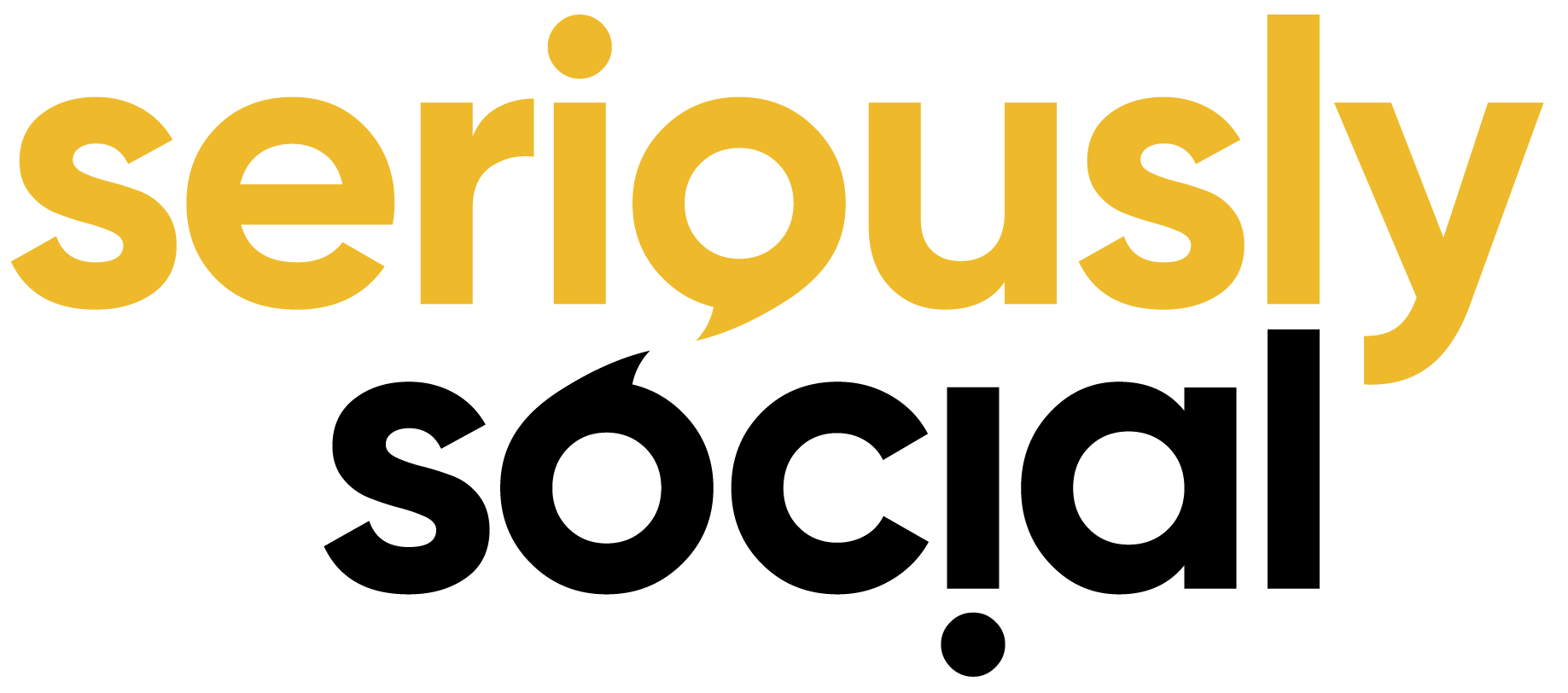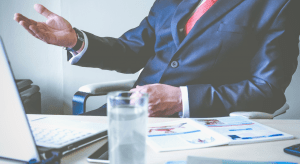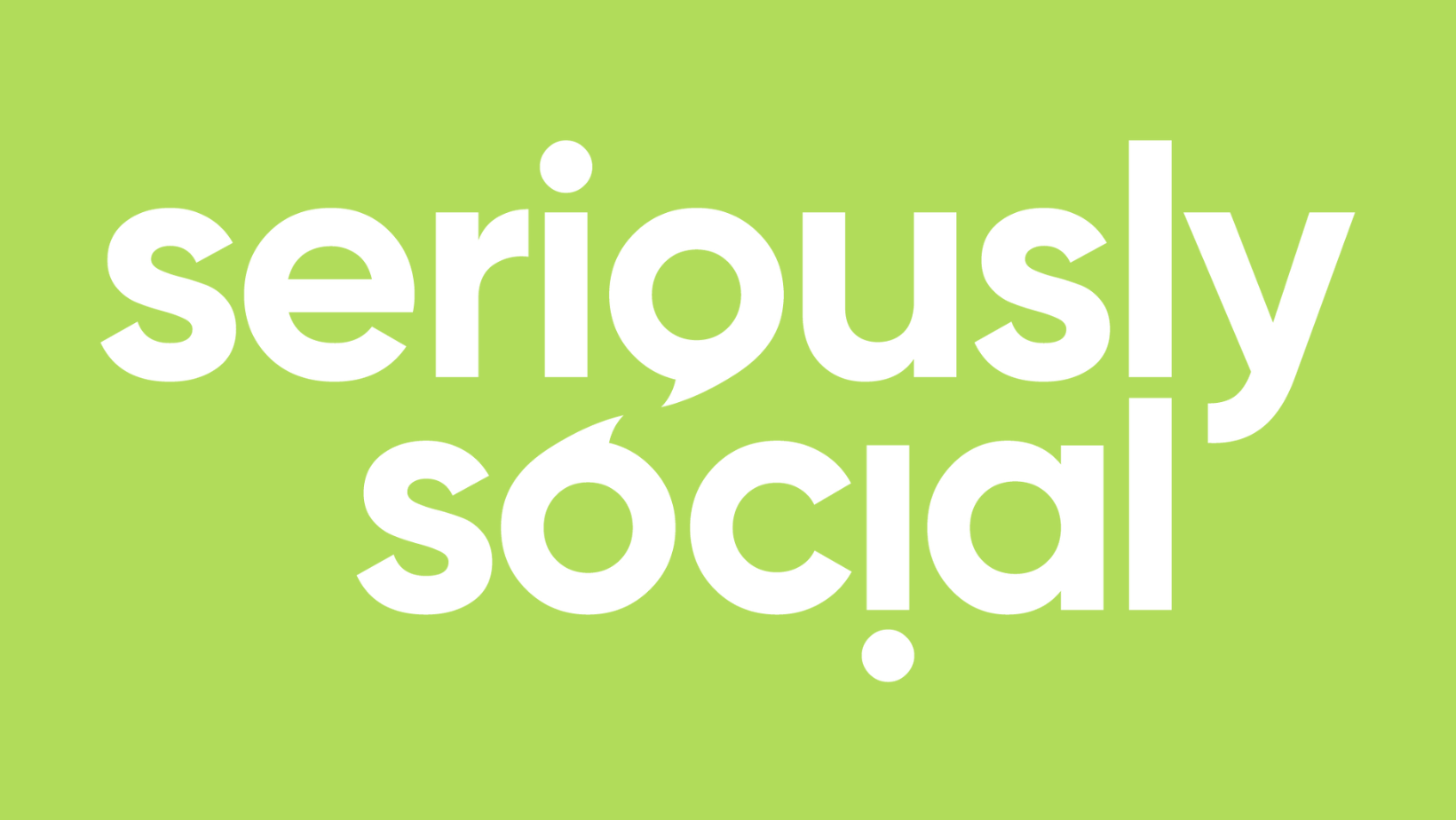Episode Notes
When is a health crisis not just a health crisis? When it’s a global pandemic and it shows up the weak points that already existed in society. But could COVID19, for all its problems, be part of a much-needed reset for Australia’s health and other systems? Former Australian of the Year, Professor Fiona Stanley explores the opportunity to build a better future in this episode of the Seriously Social podcast.
Transcript
[Start of recorded material]
Ginger Gorman: Hello, and lovely to have you with me for Seriously Social. This is the podcast that helps you understand your world. Every episode, you will hear in-depth, intelligent insights from Australia’s best social scientists. We’ll talk human society, our social relationships and the world in transition.
Joining me in just a moment is Professor Fiona Stanley, esteemed Child Health Researcher and Epidemiologist. Fiona is Founding Director of the Telethon Kids Institute in Western Australia and she’s also a Fellow of quite a few prestigious academies, the Academy of Social Sciences in Australia, the Australian Academy of Science, the Australian Academy of Health and Medical Sciences and the American Academy of Arts and Sciences.
Lately, Fiona has been looking at society through a so-called social medicine lens and pondering upon the seismic opportunities that the COVID-19 pandemic just might give us to change for the better.
Fiona, thank you so much for joining me.
Professor Fiona Stanley: Thank you very much, Ginger. It’s great to be on.
Ginger: Now, you’ve been thinking and writing about the opportunities that the pandemic might afford us to create a stronger and healthier society. And you ask this really interesting question in one of your pieces of writing: do we snap back to the way things were before coronavirus? What is your conclusion?
Professor Fiona Stanley: Well, I think it would be absolutely a lost opportunity if we decided that we would snap back because, in fact, if you look at society before COVID, it actually wasn’t the kind of society that many of us, who care very deeply about equitable and sustainable wellbeing, a future for our grandchildren that will enable them to thrive. There were things that were, in fact, obviously worrying about society before COVID. And, of course, what COVID’s done has exposed them even more. So, I think it is an amazing opportunity, if we can grasp it.
There’s a wonderful quote from Rebecca Solnit, who says, “At moments of immense change, we see with new clarity the systems – political, economic, social, ecological – in which we are immersed as they change around us. We see what’s strong, what’s weak, what’s corrupt, what matters and what doesn’t.” And I think that’s what COVID has done.
But if you look at our Australian society before COVID, there were a lot of inequities, there were a lot of issues and problems facing us. I call them the wicked problems and many of them stemmed from the way we live on the planet. And so, let’s get into thinking about how we might live differently on the planet and how that will help our futures.
Ginger: There are so many questions I want to pull out from what you’ve just said, but I have heard you say ‘the wicked problems’ a number of times when you’ve been speaking previously. So, what do you define as wicked problems, Fiona? What are they in your mind?
Professor Fiona Stanley: Well, they came into sort of parlance about 10 years ago when we were very concerned about the rising rates of mental health problems in kids, developmental disorders, like autism, the things like rising rates of crime in young people, but also things like climate change, environmental degradation. Not just problems in health, which is my expertise, but problems in the social arena, kids failing at school and all these sorts of things.
And as I said, it’s a function of the way we live. But these wicked problems do not lend themselves to a singular intervention or a single bureaucracy to deal with. And there’s a wonderful quote that says, “For these complex problems, there is a simple solution and it’s always wrong.” And I think that’s true.
So, really, what a wicked problem demands is a whole-of-government response or an understanding that we have social determinants of health, we have educational determinants of health, we have health determinants of education. And maybe the biggest gains you’re going to get are actually from outside that single bureaucracy, even though, if I’m interested in health improvements, for example, it may be that outside health where I’m going to get my biggest bang for my buck in looking at social factors or looking at education and other things.
So, the biggest wicked problem that demands a multi-sector, multidisciplinary attack is climate change. But I wish, in a way, we hadn’t called it climate change. I wished we’d called it planetary overload or environmental damage or planetary ill health because, in fact, it’s the way we live and the overconsumption, the overpopulation, the extreme wealth creation that’s led to climate change with fossil fuels being so incredibly important.
So, there are lots of things again to tease out in that. But a wicked problem is one that requires a complex multidisciplinary whole-of-government attack. And really, it’s whole-of-globe attack for this.
Ginger: I find it quite interesting that you consider Australian society to almost have been in ill health before the pandemic because, if you looked at Australia in terms of economics, we were actually quite economically healthy. But you don’t believe this is a good measure of how a society is going and I wonder why that is.
Professor Fiona Stanley: Well, I’m very much part of the OECD global project on Beyond GDP. And I’m one of those people who believes that an excessive focus on a singular measure of societal progress, the GDP, has been extraordinarily damaging because what it doesn’t measure are all the things that really impact on the health and wellbeing of that population because, if you look at GDP, it measures productivity and sales. So, if you sell lots of alcohol, guns, arms, all these things, tobacco, that’s good GDP, but not very good for your health.
After the very severe bushfires, not the ones most recently, Black Saturday, there was a four billion increase in GDP due to all the expenditure that happened following those bushfires. So, you can see that it’s not a good measure of societal progress.
And a singular focus on financial bottom lines has left us with rising inequalities, with privatisation of essential services, such as health and welfare, prisons and schools, which in fact, have really not delivered particularly in an equal way across society. And I think everyone knows that things like mental health problems are rising and justice issues with young people and so on, there is a certain dis-ease about what was happening pre-COVID.
Ginger: Why do you think we’ve latched onto GDP, we being the globe, really? Numerous countries rely on GDP in this way when it was never actually designed to be the measure of a community’s health.
Professor Fiona Stanley: The media, bureaucrats and politicians love a singular measure. How are we progressing? It really came into great popularity after the Keynesian kind of economy, which is post‑war where we had a capitalism with a social democratic face. We had the NHS being developed. We had a lot of publicly funded welfare services. Australia’s poverty would be a whole lot worse if we didn’t have family payments and all these sorts of things that are part of a welfare state.
And so, what happened I guess, in the sort of late-’70s, early-’80s, Milton Friedman, and then Thatcher and Raegan really sort of said, “Well, really, what we need is to create wealth. And there will be a trickle-down effect, a trickle‑down effect on the rest of society, but we want the corporate world to really run with a wealth-creation agenda.” And of course, GDP was the singular measure to measure that kind of corporate wealth.
As Thatcher said, “There’s no such thing as society. There’s only individuals.” And, of course, that was totally wrong. And so, this extreme capitalism, fuelled by measuring GDP, has had a very bad effect on the planet. The multinational corporates are above government.
Coca-Cola wants to sell Coca-Cola to the Philippines. The last thing the Philippines needs is high sugar drinks. And Ford wants to sell cars to the Philippines. The last thing the Philippines needs is lots of polluting cars. But they don’t care a fig about the Philippines. All they care about is selling cars and selling Coca-Cola. So, this sort of push to create wealth has been very detrimental to their health and wellbeing.
So, countries are richer and poorer and within countries, there’s richer and poorer and that has resulted in a very adverse effect on the health and wellbeing of citizens. But this denigration of publicly-funded welfare services by the corporates I think has been very negative in Australia and other countries like us.
Ginger: One of the quotes I read in a chapter that you sent me that hasn’t been published yet was quite astounding, Fiona. You wrote, “Perhaps not surprisingly, for the first time in history, our children are likely to have shorter lives than their parents.”
Professor Fiona Stanley: Well, this is a very interesting analysis that was actually done by an epidemiologist in Western Australia, Professor D’Arcy Holman. What he did was to model the impact of obesity, the growing rates of obesity due to the overconsumption of sugary drinks and fatty foods, and the increase in sedentary occupations.
As we know, obesity rates are rising not just in the wealthy countries, but in countries like India and Indonesia, they’ve got the problems of both poverty and excess wealth and they also have these modern-world problems of obesity. And so, given that pathway from obesity into diabetes, into heart disease, into stroke, he modelled that we would be having higher rates of death.
And of course, it will be very inequitable. So, the wealthy will live until they’re 100 and the poor will start dying as Aboriginal people are, by the time they’re 60. So, that’s a very important economic impact upon a health outcome.
Ginger: I want to take a sharp turn, if I can, because one of the things that you have been noting is that some positives are coming out of the pandemic. And in fact, this is a great time for pause and reflection. So, I wonder what you have been noting in these current circumstances.
Professor Fiona Stanley: Well, there are two major things that I think are really exciting and really could have a profound effect on our society, if we were able to take them as lessons from the pandemic. The first and, of course, the most exciting is that suddenly, science was taken notice of.
So, from years, two decades almost of evidence and science being denigrated by politicians and bureaucrats and us having to fight for so much, not just in climate change science, but in a whole lot of areas of health, wellbeing, aboriginal health, lots of other things, obesity and so on, suddenly, almost overnight, science is guiding decision making. Epidemiologists are revered and people know how to spell us as well as what we do. And so, this is a major change.
In almost every press conference, there’s the epidemiologist, the data. And Australia has fantastic data and here we are, being able to show that information. And international science is being looked at and applied and people debating. Norman Swan on the ABC is now a hero because people are so anxious and people wanted to make a difference to this epidemic. So, that’s been a wonderful example, if you like, of where science conserves society so well.
So, if you take that into the post-pandemic, the post-COVID time, if we then could actually take that scientific evidence on all the things in relation to those wicked problems I mentioned – environmental degradation, climate change, mental health and aboriginal issues and all of these things – boy, that would make such a difference to our society. And it would be on issues that relate to our health and wellbeing as well, the mental health aspects, the inequities in health and so on. There is an evidence base for all of these things and science can be utilised.
Ginger: Why do you think it’s so important that expertise is taken seriously?
Professor Fiona Stanley: Well, the thing that is the worst-case scenario is with either anecdotes or the corporate sector is influencing decision making. One of the best examples of that is the obesity epidemic, when the international science is saying that increasing a sugar tax is the way to go. And that’s not allowed because, of course, the sugar cane industry in Queensland lobbies the politicians and there we go.
The other, of course, example is the fossil fuel industry lobbying the government. But we’ve had tobacco and alcohol and all these big companies, they’re the ones who are making decisions about things that are affecting our everyday lives, our ability to be healthy, our ability to be well, our ability to have equal opportunities and so on.
So, the much better way to go is to take on board the scientific evidence around all these things and to implement that.
Ginger: I read the most alarming investigation by the New York Times about how President Donald Trump ignored experts for so long at the start of the pandemic. And then, of course, we’ve seen the result of that, the catastrophic loss of life.
Professor Fiona Stanley: You could almost work out how many deaths Donald Trump had caused. And I think that’s something that we did once when our Foreign Affairs Department, or DFAT decided to stop funding the Healthy Motherhood programme of the United Nations and WHO due to a senator from Tasmania, who was catholic and didn’t want either abortions or contraception to be used in our international programmes. And we almost did an analysis of how many women died because of his policies. And those are really good examples of where you really must go with the evidence if you want to save lives.
The second thing, of course, is the fact that we moved almost overnight to a welfare state, to a socialist economy, where we brought in programmes and projects to save people’s jobs, to ensure that they didn’t go into poverty, to get the homeless housed, a whole lot of activities that were going to enable people to be able to live their lives.
We brought in a thing that was like the universal basic income. We basically got rid of unemployment. And the exciting thing about this was that we did it with huge expenditure and huge sums of money. And there’s quite an interesting debate now going on about this deficit myth and that in fact, we could make money. We actually could continue to do this with great impact upon our society.
So, these two big issues have sides driving decision making and having a welfare economy, taking away the privatisation of essential services and bringing it back into the public purse would actually make our society a much better place at the end of it.
There was another lovely set of things, of course, that happened during the pandemic, which I think we need to take on as communities and individuals, which was this loving care that was created by the pandemic. First of all, we all obeyed the regulations, the shutdown, so that we could protect each other, ourselves and our families, and that’s a loving and caring thing to do.
But the other thing was the community response of people going out to their neighbours and saying, “You’re an older person. Do you need shopping? Can I help you? Are you lonely?” all of these things which improved the mental health as well as the physical health of people and really brought communities together. And I think there were lovely things on the Internet and all of the social media, which were very, very supportive. And kids were discovering the games of old in parks and so on, and going on to the footpath and putting chalk messages there for everybody and all these sort of things.
Now, it sounds a bit trivial, but in fact, collectively I think that had a major impact on people’s mental health and their wellbeing. And that’s the kind of community that makes a difference. And I think we should look at how we might be able to foster that.
Ginger: Is that what you mean when you refer to social medicine in your work?
Professor Fiona Stanley: Not really. What social medicine’s about and why I’m so excited about it is that the biggest impact on really all of the diseases that are affecting mankind and many things that are also other conditions, like disabilities, poor educational outcomes, crime and so on, are socially determined. They’re called the social determinants of health. We can talk about the social determinants of education, the social determinants of child protection, the social determinants of criminal activities. All of these wicked problems arise in social inequity and in poor circumstances.
And so, it’s actually quite exciting to think that if we could actually look at what those intergenerational causes are of poverty and poor outcomes then we could really do something about it. So, the exciting thing for many of us who are interested in social medicine during this pandemic is, “Hey, come on. Why don’t we think about some of these interventions that are social, that are economic, but that are addressing missing equity?”
Maybe we could actually start to have a much more equal society and these social determinants of problems would actually make a big difference because, if you think about healthcare, it’s actually aimed at the ends of problems – renal dialysis, heart attacks, surgery for problems. Well, really, the biggest bang for our buck is looking at, “Why did I have a heart attack? What are the pathways into my mental health problems? Why did I get diabetes? Why am I fat? Why do I get arthritis?” all of these things.
And so, this social medicine is all about those pathways that start in social inequity and maybe that that’s where we’re going to get our prevention. Now, vaccination, of course, is one of the most successful public health interventions ever, and of course, we are just longing for a vaccine for COVID-19. But that can be universally applied and is something that’s made a huge difference to infectious disease across the globe. So, those kinds of things, which look at prevention, early intervention, are the most cost effective things we can do as a society. So, social medicine is really about all of that.
Ginger: But why, in your mind, Fiona, has the pandemic been a critical moment to kind of examine the systems that you’re talking about? Why haven’t we done it previously?
Professor Fiona Stanley: Well, as I said, the things that have been pushing our society have been the GDP, wealth creation, greed, individual success. And mere capitalist agenda has pervaded all of our societies, probably except Cuba and a few others, Kerala in India. And they’re very interesting examples, actually. So, that’s been overriding.
And it’s sort of almost innate that people think, “Oh, I have to be wealthy. I have to be rich. I have to be successful.” It’s, “Me, me, me, me.” But in fact, what the pandemic has done is said, “Hang on a minute. We’re not going to survive this unless we change how we work together, and live together and act together.” It has been a real wakeup call.
It’s interesting that the bushfires didn’t do it for us, but maybe a little virus is going to do it. It’s going to change the way we think about the planet. I think it’s a very interesting case study, actually.
Ginger: But the bushfires might not have done it alone, but then came the pandemic and somehow, together it had an impact.
Professor Fiona Stanley: That’s right. The pandemic has been urgent. People can say, “Oh, well, climate change. Yeah, well, we’ve got a few years.” Climate change is a much more worrying scenario for us than the pandemic, actually. In terms of long-term and major impact on our health and wellbeing, climate change is much more worrying. But the pandemic is urgent. It’s now. It’s killing people now. It’s going globally. With over 16 million cases now and so on, it really is an urgent thing, which has made us look at ourselves.
Ginger: Where do you think we should go now?
Professor Fiona Stanley: Well, I know that I’m probably being overly optimistic and that’s the way I guess I am. But if we could take on board some of these lessons and these opportunities, looking towards things like full employment with a universal basic income, looking at how we listen to our citizens.
The best example of that is the First Nations’ response to the pandemic, giving people a voice. We all expected, with the H1N1 example in 2009 of Aboriginal people dying and getting much sicker than the rest of the population, we expected that they were going to do very badly. And in fact, they’ve done better than any population in the world.
Because the Aboriginal leaders, the Aboriginal medical leaders, NACCHO and all of the major organisations got together, lobbied government and took control, we have only had something like 60 cases of COVID-19 nationwide amongst the First Nations population. We would have expected hundreds and hundreds. They only had 15% hospitalisations, no one in intensive care and no deaths.
Compared with other indigenous populations around the world, it’s an extraordinary success story and no one’s making a big fuss of it except us. And it really is a credit and shows the evidence of giving Aboriginal leaders that power to do their own work and what an incredible success it has been.
It hasn’t hit the media, which I wish it would. Of course, if they’d had a very bad outcome, that would have hit the media. It’s not fair. So, we need to sing this from the rafters. It’s a very good example of giving Aboriginal people a voice.
So, it’s actually a good example too of trying to get citizens’ engagement with politicians and to try and say, “Hang on a minute, we’re doing polling, which says 80% of Australia’s population doesn’t want to snap back to what it was before.” We want to go for things that are going to benefit our society. Keep the free childcare. Look at universal basic income. Perhaps take away the privatisation of prisons, health systems and welfare systems and get it back into the public arena and then we actually might have a society that’s a sustainably equitable society that’s going to make a difference to our children and grandchildren. I think it is a golden opportunity here if we wanted to grasp it and if we could grasp it.
Ginger: Thank you so much for talking to me today, Fiona.
Professor Fiona Stanley: Thank you so much. It’s been great, Ginger.
Ginger: And thank you again for listening to Seriously Social. Don’t forget, if you like what you are hearing, share our podcast with your friends and on your social channels, and rate us wherever you get your podcasts from.
Useful links
- Wicked Problems: Understanding and Responding to Complex Challenges by Brian W. Head




